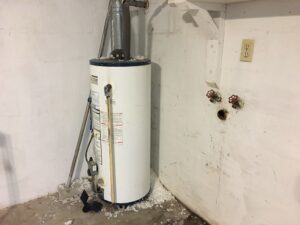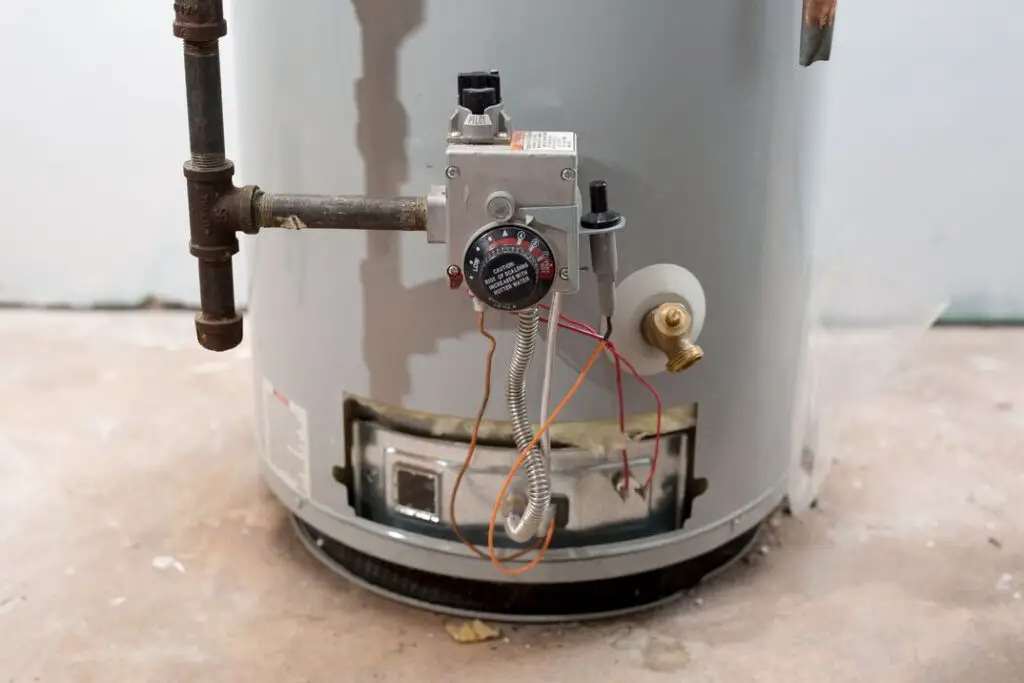Most people assume that a gas water heater needs to be grounded when installing it. However, this is not always the case and there are some instances where grounding isn’t necessary for safety reasons.
In the same vein, you also may be thinking that your water heater doesn’t need to be grounded because it is a gas one. But you must remember, there are many different types of heaters and some have ground wires in the electrical connections. Read more about why you need to ground your gas water heater and how to do it here!
Does a gas water heater need to be grounded?
A gas water heater will only provide the energy that is needed to heat the water if it is grounded. The grounding is intended to protect against a voltage spike that might harm the rest of the system. Most states also have rules that expressly describe the criteria for grounding; a skilled electrician will not only be aware of these codes but will also strictly adhere to them.
With a gas water heater, it is important to make sure that the installation was done according to building and plumbing codes. If your neighbor has theirs installed on a stand, it is likely because they have followed these rules in your area.
Grounding a gas water heater will help protect against electric shock when plugged into an electrical outlet with no ground wire present or if other appliances are plugged into outlets without grounding features (i.e., receptacles).
It’s worth noting that ground wires are not required for most installations of gas water heaters as long as you follow local code requirements closely enough.

What does a gas water heater need to be grounded?
Hot water heater requires a ground wire. A gas water heater should be grounded to prevent the risk of electrical shock. The hot water lines have a ground wire, so it is important for these components to be connected in order for electricity not to flow into the wrong places.
According to National Fuel Gas Code, gas heaters should be 18 inches off the ground. This helps prevent short circuits and keeps your home safe from fires. It also prevents any possible hazards since it’s a code that is required for safety purposes in the installation and maintenance of gas water heater systems.
It’s important to remember that the stand between the heater and the ground should be strong enough for a full tank, not just an empty one.
What Happens If A Water Heater Is Not Grounded?
A water heater is typically grounded, and a ground wire is connected to the metal tank. If one of these two things is not present or if there’s no ground wire, then the risks for electrical shock increase significantly.
The risk of the electrical shock increases because unlike other appliances that have grounding wires connecting them to an earth rod in your home’s plumbing system, gas-fired water heaters don’t have this safety feature built into them.
The heating element can be used to determine whether or not your water heater is grounded. The method takes only a few minutes and is a pretty easy operation that also tests for continuity in the heating element.
Testing for ground on a heating element is quite similar to testing for continuity on that element. The distinction is in the failure. When checking for ground, a plastic insulator keeps the heating source completely away from the metal in your tank. Water in the tank might create a short if the insulator splits or gets loose.
If electricity flows into the tank and then back via your ground wire, the element will not heat up. That implies there will be no hot water. Testing for ground entails determining if the element is grounding out when it comes to the tank’s metal.
How to Check if Your Water Heater is Grounded
If you are unsure whether or not your water heater is grounded – either because you did not install it or because you do not trust the installation – there is a simple test I recommend. Simply following these instructions should allow you to determine whether your water heater is grounded.
Turn off the power.
The first thing you should do with anything carrying an electrical current is turned it off. No matter how basic or straightforward the repair appears to be, electricity is not to be trifled with.
Go to your main electrical panel and turn off the breaker for your hot water heater. Most electrical panels will be labeled with their respective breakers, making it simple to locate the breaker associated with the water heater.
Get to Know Your Heater Elements
There are two heating components in electric water heaters: upper and lower. You should see cover plates on the outside of your tank that is held in place with just a handful of screws. To access the thermostats and element end, you must remove those screws and remove the plates.
In general, the elements will be located below the thermostats on an electric water heater. In addition, your upper element should have a noticeable red reset button on or near it. To gain access to the elements, you may need to take the insulation out of the way in some circumstances.
Perform a ground test.
The good news is that checking your heater elements for the ground is quite similar to evaluating the elements themselves. To be safe, ensure that the power is turned off and that a voltage tester is used.
Take one of your element’s wires and attach it to one of the terminals of your tester. In this case, you don’t want to see a light. If you see one, it implies the element is grounding out and has to be replaced completely. Make certain that both items are checked.
Conclusion: Does A Gas Water Heater Need To Be Grounded?
As a result, one of two things will happen: the element will pass or fail. If it passes, you could be alright, but you’re probably checking because you’re having some other problem. You may need to test to check that the element is still operational before calling it quits.
If your ground test fails, it signifies your element is shorting out. If the element shorts out, it must be completely replaced. It cannot be fixed, and there are no replacement components available, leaving you with few choices.
It is also critical to test both aspects. If the first one fails, don’t assume it’s the only one to blame. Make careful to conduct your ground test on the other elements as well, since both elements can be ground out. Replace any or both elements as needed, then test your water heater again to rule out any other potential problems.
Also Read:
Mike Spencer
Hi Guys, Mike is a Mechanical Engineer who specializes in Heating, Ventilation, and Air-conditioning. His love for humanity and his profession propels him to share useful and factual Information on this blog.

